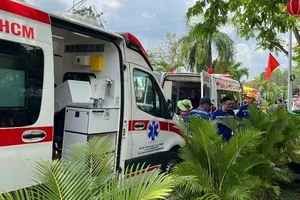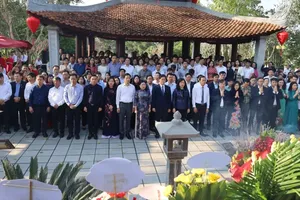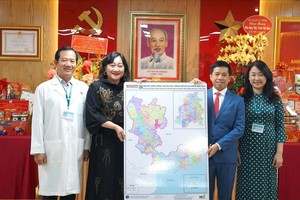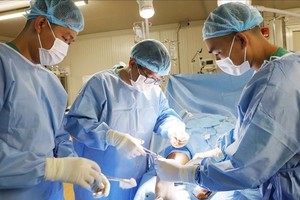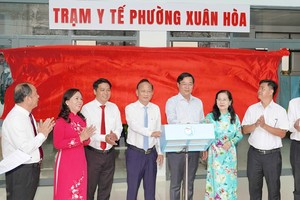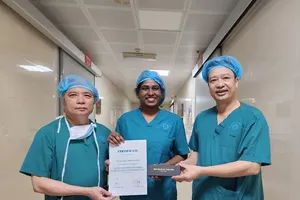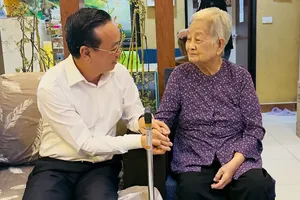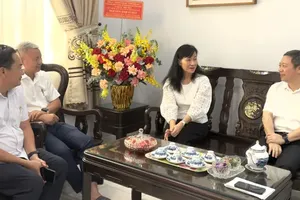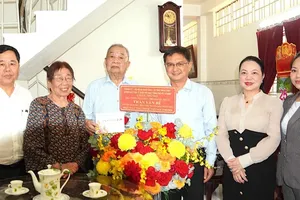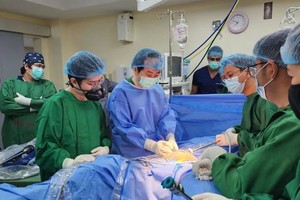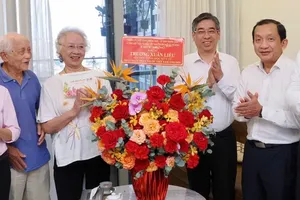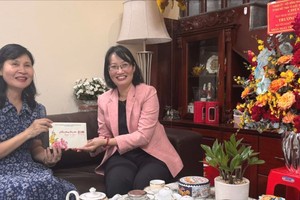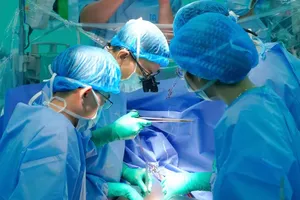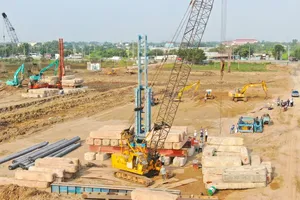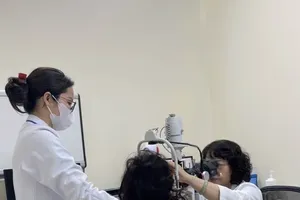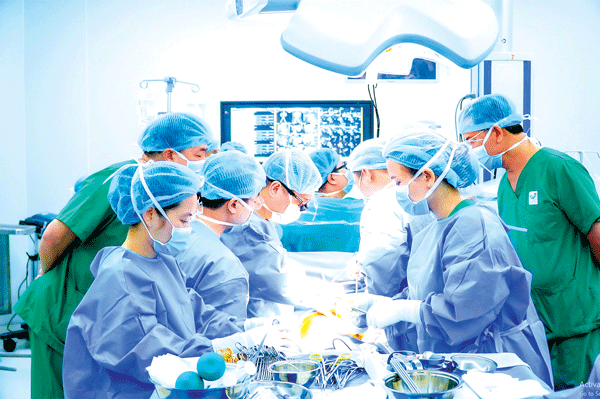Deputy Minister of Health Do Xuan Tuyen made the statement during this morning's briefing session that the prevalence of substandard and counterfeit medicines in Vietnam is lower than the global average, as reported by the World Health Organization (WHO).
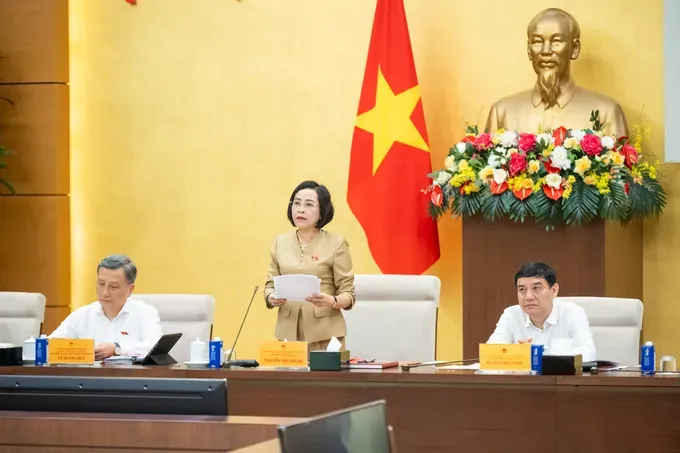
The briefing, titled ‘Implementation of policies and laws on combating counterfeit medicines and fake food’, was held this morning at Tan Trao Hall of the National Assembly. It was chaired by the National Assembly’s Committee for Culture and Social Affairs.
In her opening remarks, National Assembly Vice Chairwoman Nguyen Thi Thanh highlighted the significance of the session, noting it as the first of 2025. She stated that the session was organized under the directive of the Standing Committee of the National Assembly to improve the effectiveness of oversight activities conducted by the Ethnic Council and various committees.
Acknowledging the topic’s pressing nature and its direct impact on every citizen, she stressed that responsible agencies are all deeply aware that the harm caused by counterfeit medicines and fake food to public health and the economy is immense, to the point of being considered a menace. The Party’s stance and the State’s policies and laws clearly embody a determined commitment to combating and ultimately eliminating this threat.
Appreciating the initiative to hold the session, the Vice Chairwoman of the National Assembly requested leaders of the Ministry of Health, the Ministry of Industry and Trade, and other relevant agencies to respond candidly and provide practical, feasible solutions to effectively address the issue, ensure accountability, and contribute to improving the quality and effectiveness of efforts to combat counterfeit medicines and fake food in the time ahead.
Reporting at the session, Deputy Minister of Health Do Xuan Tuyen stated that countries around the world are grappling with the problem of counterfeit medicines. Such medicines are found not only in less developed nations but also in developed countries, including the United States and those in Europe.
In Vietnam, the Ministry of Health has made significant efforts to control medicine quality and combat counterfeit drugs. Each year, nearly 38,000 medicine samples are collected by health authorities from manufacturers, distributors, and medical facilities. Results show that the rate of substandard and counterfeit medicines has dropped sharply—from over 10 percent in 1990–1991 to below 2 percent in recent years. In 2024, substandard medicines accounted for just 0.45 percent, while counterfeit medicines were under 0.1 percent.
The rate of quality violations among herbal medicines and traditional remedies is higher than that of chemical drugs; however, no counterfeit medicines have been detected at medical facilities. According to the World Health Organization (WHO), the proportion of substandard and counterfeit medicines in Vietnam remains lower than the global average.
However, in recent times, authorities have still uncovered and dismantled cases of counterfeit drug production and trading, notably fake antibiotic networks in Hanoi, Can Tho, and Ben Tre (August 2024), as well as a large-scale ring producing counterfeit medicines and health supplements across multiple provinces (April 2025). According to the Ministry of Health, the fight against counterfeit drug production and trade will continue to face significant challenges in the coming period.
Analyzing the causes and severe consequences of counterfeit medicines, Deputy Minister Do Xuan Tuyen proposed amending and supplementing several legal documents, including the Law on Food Safety which is scheduled to be submitted to the National Assembly in October 2025, Decree No. 117/2020/ND-CP on administrative penalties in the health sector, Decree No. 15/2018/ND-CP guiding the implementation of the Food Safety Law, and Decree No. 115/2018/ND-CP on administrative penalties for food safety violations to strengthen sanctions and ensure sufficient deterrence.
He also recommended that the Ministry of Industry and Trade urgently review and amend Decree No. 98/2020/ND-CP on administrative penalties in commercial activities, including the production and trading of counterfeit goods.
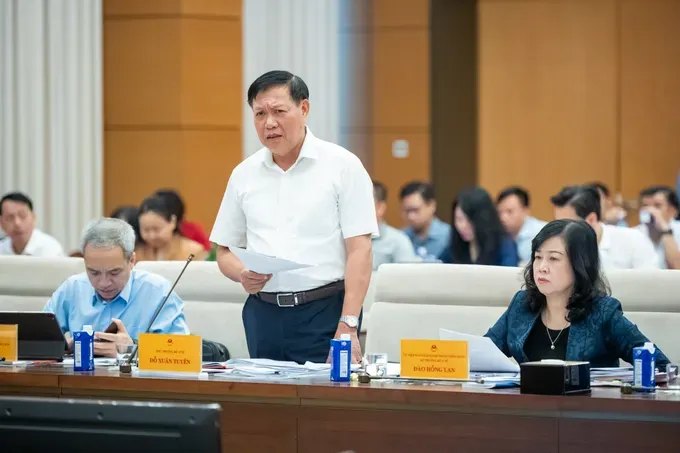
In addition, a representative of the Ministry of Health called for strengthening inspections, with particular attention to product origin and documentation. The ministry also urged closer coordination with the police to investigate and trace counterfeit medicine and fake food networks to their sources, as well as the establishment of inter-agency inspection teams to oversee the supply chain.
The fight against counterfeit medicines and fake food involves the participation of multiple ministries, agencies, and local authorities. The Ministry of Industry and Trade is responsible for market inspections, combating trade fraud and smuggling, regulating e-commerce, and inspecting the quality of industrial products.
The Ministry of Agriculture and Environment oversees counterfeit prevention in agricultural, forestry, and fishery products, and combats the smuggling of agricultural materials. The Ministry of Science and Technology monitors standards, quality, and intellectual property, while also developing anti-counterfeiting technologies. The Ministry of Health supervises the quality of medicines, functional foods, and cosmetics, and inspects food safety. Local authorities are tasked with preventing and cracking down on the production and trading of counterfeit goods within their jurisdictions.
